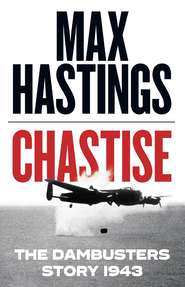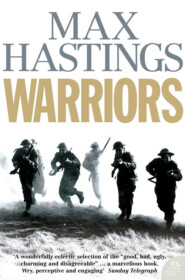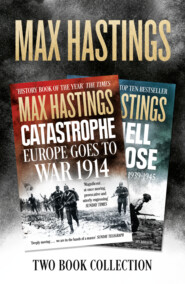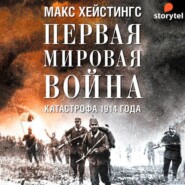По всем вопросам обращайтесь на: info@litportal.ru
(©) 2003-2024.
✖
Finest Years: Churchill as Warlord 1940–45
Настройки чтения
Размер шрифта
Высота строк
Поля
The German blitzkrieg was reported under a double-column headline: ‘Hitler strikes at the Low Countries’. Commentaries variously asserted: ‘Belgians confident of victory; ten times as strong as in 1914’; ‘The side of Holland’s economic life of greatest interest to Hitler is doubtless her agricultural and allied activities’; ‘The Military Outlook: No Surprise This Time’. The Times’s editorial column declared:‘It may be taken as certain that every detail has been prepared for an instant strategic reply…The Grand Alliance of our time for the destruction of the forces of treachery and oppression is being steadily marshalled.’
A single column at the right of the main news, on page six, proclaimed: ‘New prime minister. Mr Churchill accepts’. The news-paper’s correspondence was dominated by discussion of Parliament’s Norway debate three days earlier, which had precipitated the fall of Chamberlain. Mr Geoffrey Vickers urged that Lord Halifax was by far the best-qualified minister to lead a national government, assisted by a Labour leader of the Commons. Mr Quintin Hogg, Tory MP for Oxford, noted that many of those who had voted against the government were serving officers. Mr Henry Morris-Jones, Liberal MP for Denbigh, deplored the vote that had taken place, observing complacently that he himself had abstained. The news from France was mocked by a beautiful spring day, with bluebells and primroses everywhere in flower.
‘Chips’ Channon, millionaire Tory MP, diarist and consummate ass, wrote on 10 May: ‘Perhaps the darkest day (#litres_trial_promo) in English history…We were all sad, angry and felt cheated and out-witted.’ His distress was inspired by the fall of Chamberlain, not the blitzkrieg in France. Churchill himself knew better than any man how grudgingly he had been offered the premiership, and how tenuous was his grasp on power. Much of the Conservative Party hated him, not least because he had twice in his life ‘ratted’—changed sides in the House of Commons. He was remembered as architect of the disastrous 1915 Gallipoli campaign, 1919 sponsor of war against the Bolsheviks in Russia, 1933-34 opponent of Indian self-government, 1936 supporter of King Edward VIII in the Abdication crisis, savage backbench critic of both Baldwin and Chamberlain, Tory prime ministers through his own ‘wilderness years’.
In May 1940, while few (#litres_trial_promo) influential figures questioned Churchill’s brilliance or oratorical genius, they perceived his career as wreathed in misjudgements. Robert Rhodes-James subtitled his 1970 biography of Churchill before he ascended to the premiership A Study in Failure. As early as 1914, the historian A.G. Gardiner wrote an extraordinarily shrewd and admiring assessment of Churchill, which concluded equivocally: ‘ “Keep your eye on Churchill” (#litres_trial_promo) should be the watchword of these days. Remember, he is a soldier first, last and always. He will write his name big on our future. Let us take care he does not write it in blood.’
Now, amidst the crisis precipitated by Hitler’s blitzkrieg, Churchill’s contemporaries could not forget that he had been wrong about much even in the recent past, and even in the military sphere in which he professed expertise. During the approach to war, he described the presence of aircraft over the battlefield as a mere ‘additional complication (#litres_trial_promo)’. He claimed that modern anti-tank weapons neutered the powers of ‘the poor tank (#litres_trial_promo)’, and that ‘the submarine will be mastered (#litres_trial_promo)…There will be losses, but nothing to affect the scale of events.’ On Christmas Day 1939 he wrote to Sir Dudley Pound, the First Sea Lord: ‘I feel we may compare (#litres_trial_promo) the position now very favourably with that of 1914.’ He had doubted that the Germans would invade Scandinavia. When they did so, Churchill told the Commons on 11 April: ‘In my view, which is shared by my skilled advisers, Herr Hitler has committed a grave strategic error in spreading the war so far to the north…We shall take all we want of this Norwegian coast now, with an enormous increase in the facility and the efficiency of our blockade.’ Even if some of Churchill’s false prophecies and mistaken expressions of confidence were unknown to the public, they were common currency among ministers and commanders.
His claim upon his country’s leadership rested not upon his contribution to the war since September 1939, which was equivocal, but upon his personal character and his record as a foe of appeasement. He was a warrior to the roots of his soul, who found his being upon battlefields. He was one of the few British prime ministers to have killed men with his own hand—at Omdurman in 1898. Now he wielded a sword symbolically, if no longer physically, amid a British body politic dominated by men of paper, creatures of committees and conference rooms. ‘It may well be (#litres_trial_promo),’ he enthused six years before the war, ‘that the most glorious chapters of our history have yet to be written. Indeed, the very problems and dangers that encompass us and our country ought to make English men and women of this generation glad to be here at such a time. We ought to rejoice at the responsibilities with which destiny has honoured us, and be proud that we are guardians of our country in an age when her life is at stake.’ Leo Amery had written in March 1940: ‘I am beginning to come round (#litres_trial_promo) to the idea that Winston with all his failings is the one man with real war drive and love of battle.’ So he was, of course. But widespread fears persisted, that this erratic genius might lead Britain in a rush towards military disaster.
Few of the ministers whom he invited to join his all-party coalition were equal to the magnitude of their tasks. If this is true of all governments at all times, it was notably unfortunate now. Twenty-one out of thirty-six senior office-holders were, like Halifax, David Margesson, Kingsley Wood and Chamberlain himself, veterans of the previous discredited administration. ‘Winston has not been (#litres_trial_promo) nearly bold enough with his changes and is much too afraid of the [Conservative] Party,’ wrote Amery, who had led the Commons charge against Chamberlain.
Of the Labour recruits—notably Clement Attlee, A.V. Alexander, Hugh Dalton, Arthur Greenwood and Ernest Bevin—only Bevin was a personality of the first rank, though Attlee as deputy prime minister would provide a solid bulwark. Sir Archibald Sinclair, the Liberal leader who had served as an officer under Churchill in France in 1916 and now became Secretary for Air, was described by those contemptuous of his subservience to the new prime minister as ‘head of school’s fag’. Churchill’s personal supporters who received office or promotion, led by Anthony Eden, Lord Beaverbrook, Brendan Bracken and Amery, were balefully regarded not only by Chamberlain loyalists, but also by many sensible and informed people who were willing to support the new prime minister, but remained sceptical of his associates.
Much of the political class thought Churchill’s administration would be short-lived. ‘So at last that man (#litres_trial_promo) has gained his ambition,’ an elderly Tory MP, Cuthbert Headlam, noted sourly. ‘I never thought he would. Well—let us hope that he makes good. I have never believed in him. I only hope that my judgement…will be proved wrong.’ The well-known military writer Captain Basil Liddell Hart wrote gloomily on 11 May: ‘The new War Cabinet (#litres_trial_promo) appears to be a group devoted to “victory” without regard to its practical possibility.’ Lord Hankey, veteran Whitehall éminence grise and a member of the new government, thought it ‘perfectly futile for war (#litres_trial_promo)’ and Churchill himself a ‘rogue elephant’.
Even as Hitler’s Panzer columns drove for Sedan and pushed onward through Holland and Belgium, Churchill was filling lesser government posts, interviewing new ministers, meeting officials. On the evening of 10 May Sir Edward Bridges, the shy, austere Cabinet Secretary, called at Admiralty House, where Churchill still occupied the desk from which he had presided as First Lord. Bridges decided that it would be unbecoming for an official who until that afternoon had been serving a deposed prime minister, too obsequiously to welcome the new one. He merely said cautiously: ‘May I wish you every possible (#litres_trial_promo) good fortune?’ Churchill grunted, gazed intently at Bridges for a moment, then said: ‘Hum. “Every good fortune!” I like that! These other people have all been congratulating me. Every good fortune!’
At Churchill’s first meeting with the chiefs of staff as prime minister on 11 May, he made two interventions, both trifling: he asked whether the police should be armed when sent to arrest enemy aliens, and he pondered the likelihood of Sweden joining the war on the Allied side. Even this most bellicose of men did not immediately attempt to tinker with the movements of Britain’s army on the Continent. When Eden, the new Secretary for War, called on the prime minister that day, he noted in his diary that Churchill ‘seemed well satisfied (#litres_trial_promo) with the way events were shaping’. If these words reflected a failure to perceive the prime minister’s inner doubts, it is certainly true that he did not perceive the imminence of disaster.
Churchill cherished a faith in the greatness of France, the might of her armed forces, most touching in a statesman of a nation traditionally wary of its Gallic neighbour. ‘In Winston’s eyes (#litres_trial_promo),’ wrote his doctor later, ‘France is civilisation.’ Even after witnessing the German conquest of Poland and Scandinavia, Churchill understood little about the disparity between the relative fighting powers of Hitler’s Wehrmacht and Luftwaffe, and those of the French and British armies and air forces. He, like almost all his advisers, deemed it unthinkable that the Germans could achieve a breakthrough against France’s Maginot Line and the combined mass of French, British, Dutch and Belgian forces.
In the days that followed his ascent to Downing Street on 10 May, Churchill set about galvanising the British machinery of war and government for a long haul. As war leader, he expected to preside over Britain’s part in a massive and protracted clash on the Continent. His foremost hope was that this would entail no such slaughter as that which characterised the 1914-18 conflict. If he cherished no expectation of swift victory, he harboured no fear of decisive defeat. On 13 May, headlines in The Times asserted confidently: ‘BRITISH FORCES MOVING ACROSS BELGIUM—SUCCESSFUL ENCOUNTERS WITH ENEMY—RAF STRIKES AGAIN’.
Addressing the Commons that day, the prime minister apologised for his brevity: ‘I hope that…my friends…will make allowance, all allowance, for any lack of ceremony with which it has been necessary to act…We have before us an ordeal of the most grievous kind. We have before us many, many long months of struggle and of suffering…But I take up my task with buoyancy and hope. I feel sure that our cause will not be suffered to fail among men. At this time I feel entitled to claim the aid of all, and I say: “Come then, let us go forward together with our united strength.” ’
Churchill’s war speeches are usually quoted in isolation. This obscures the bathos of remarks by backbench MPs which followed those of the prime minister. On 13 May, Major Sir Philip Colfox, West Dorset, said that although the country must now pursue national unity, he himself much regretted that Neville Chamberlain had been removed from the premiership. Sir Irving Albery, Gravesend, recalled the new prime minister’s assertion: ‘My policy is a policy of war.’ Albery said he thought it right to praise his predecessor’s commitment to the cause of peace. Colonel John Gretton, Burton, injected a rare note of realism by urging the House not to waste words, when ‘the enemy is almost battering at our gates’. The bleakest indication of the Conservative Party’s temper came from the fact that while Neville Chamberlain was cheered as he entered the chamber that day, Churchill’s appearance was greeted with resentful Tory silence.
This, his first important statement, received more applause from abroad than it did from some MPs. The Philadelphia Inquirer editorialised: ‘He proved in this (#litres_trial_promo) one short speech that he was not afraid to face the truth and tell it. He proved himself an honest man as well as a man of action. Britain has reason to be enheartened by his brevity, his bluntness and his courage.’ Time magazine wrote: ‘That smart, tough, dumpy little man (#litres_trial_promo), Prime Minister Winston Churchill, knows how to face facts…Great Britain’s tireless old firebrand has changed the character of Allied warmongering.’
That day, 13 May, the threat of German air attack on Britain caused Churchill to make his first significant military decision: he rejected a proposal for further fighter squadrons to be sent to France to reinforce the ten already committed. But while the news from the Continent was obviously bleak, he asserted that he was ‘by no means sure that the great battle was developing’. He still cherished hopes of turning the tide in Norway, signalling to Admiral Lord Cork and Orrery on 14 May: ‘I hope you will get Narvik cleaned up as soon as possible, and then work southward with increasing force.’
Yet the Germans were already bridging the Meuse at Sedan and Dinant, south of Brussels, for their armoured columns emerging from the Ardennes forests. A huge gap was opening between the French Ninth Army, which was collapsing, and the Second on its left. Though the BEF in Belgium was still not seriously engaged, its C-in-C Lord Gort appealed for air reinforcements. Gort commanded limited confidence. Like all British generals, he lacked training and instincts for the handling of large forces. One of the army’s cleverest staff officers, Colonel Ian Jacob of the war cabinet secretariat, wrote: ‘We have for twenty years (#litres_trial_promo) thought little about how to win big campaigns on land; we have been immersed in our day-to-day imperial police activities.’
This deficiency, of plausible ‘big battlefield’ commanders, would dog British arms throughout the war. Gort was a famously brave officer who had won a VC in World War I, and still carried himself with a boyish enthusiasm. Maj.Gen. John Kennedy, soon to become Director of Military Operations at the War Office, described the BEF’s C-in-C as ‘a fine fighting soldier’—a useful testimonial for a platoon commander. In blunter words, the general lacked brains, as do most men possessed of the suicidal courage necessary to win a Victoria Cross or Medal of Honor. A shrewd American categorised both Gort and the Chief of the Imperial General Staff, Sir Edmund Ironside, as ‘purely physical soldiers (#litres_trial_promo) who had no business in such high places’. Yet Sir Alan Brooke or Sir Bernard Montgomery would have been no more capable of averting disaster in 1940, with the small forces available to the BEF. Unlike most of Continental Europe, Britain had no peacetime conscription for military service until 1939, and thus no large potential reserves for mobilisation. The army Gort commanded was, in spirit, the imperial constabulary of inter-war years, starved of resources for a generation.
On 14 May, for the first time Churchill glimpsed the immensity of the Allies’ peril. Paul Reynaud, France’s prime minister, telephoned from Paris, reporting the German breakthrough and asking for the immediate dispatch of a further ten RAF fighter squadrons. The chiefs of staff committee and the war cabinet, which met successively at 6 and 7 o’clock, agreed that Britain’s home defences should not be thus weakened. At seven next morning, the 15th, Reynaud telephoned personally to Churchill. The Frenchman spoke emotionally, asserting in English: ‘The battle is lost.’ Churchill urged him to steady himself, pointing out that only a small part of the French army was engaged, while the German spearheads were now far extended and thus should be vulnerable to flank attack.
When Churchill reported the conversation to his political and military chiefs, the question of further air support was raised once more. Churchill was briefly minded to accede to Reynaud’s pleas. But Chamberlain sided with Air Chief Marshal Sir Hugh Dowding, C-in-C of Fighter Command, who passionately demurred. No further fighters were committed. That day Jock Colville, the prime minister’s twenty-five-year-old junior private secretary and an aspiring Pepys, noted in his diary the understated concerns of Maj.Gen. Hastings ‘Pug’ Ismay, chief of staff to Churchill in his capacity as Minister of Defence. Ismay was ‘not too happy about (#litres_trial_promo) the military situation. He says the French are not fighting properly: they are, he points out, a volatile race and it may take them some time to get into a warlike mood.’
Sluggish perception lagged dreadful reality. Churchill cabled to US president Franklin Roosevelt: ‘I think myself that the battle (#litres_trial_promo) on land has only just begun, and I should like to see the masses engage. Up to the present, Hitler is working with specialized units in tanks and air.’ He appealed for American aid, and for the first time begged the loan of fifty old destroyers. Washington had already vetoed a request that a British aircraft-carrier should dock at an American port to embark uncrated, battle-ready fighters. This would breach the US Neutrality Act, said the president. So too, he decided, would the dispatch of destroyers.
In France on the 15th, the RAF’s inadequate Battle and Blenheim bombers suffered devastating losses attempting to break the Germans’ Meuse pontoon bridges. A watching Panzer officer wrote: ‘The summer landscape (#litres_trial_promo) with the quietly flowing river, the light green of the meadows bordered by the darker summits of the more distant heights, spanned by a brilliantly blue sky, is filled with the racket of war…Again and again an enemy aircraft crashes out of the sky, dragging a long black plume of smoke behind it…Occasionally from the falling machines one or two white parachutes release themselves and float slowly to earth.’ The RAF’s sacrifice was anyway too late. Much of the German armour was already across the Meuse, and racing westward.
On the morning of the 16th it was learned in London that the Germans had breached the Maginot Line. The war cabinet agreed to deploy four further fighter squadrons to operate over the battlefield. At 3 o’clock that afternoon the prime minister flew to Paris, accompanied by Ismay and Gen. Sir John Dill, Ironside’s Vice-CIGS. Landing at Le Bourget, for the first time they perceived the desperation of their ally. France’s generals and politicians were waiting upon defeat. As the leaders of the two nations conferred at the Quai d’Orsay, officials burned files in the garden. When Churchill asked about French reserves for a counter-attack, he was told that these were already committed piecemeal. Reynaud’s colleagues did not conceal their bitterness at Britain’s refusal to dispatch further fighters. At every turn of the debate, French shoulders shrugged. From the British embassy that evening, Churchill cabled the war cabinet urging the dispatch of six more squadrons. ‘I…emphasise the mortal gravity of the hour,’ he wrote. The chief of air staff, Sir Cyril Newall, proposed a compromise: six further squadrons should operate over France from their British airfields. At 2 a.m., Churchill drove to Reynaud’s flat to communicate the news. The prime minister thereafter returned to the embassy, slept soundly despite occasional distant gunfire, then flew home via Hendon, where he landed before 9 a.m. on the 17th.
He wore a mask of good cheer, but was no longer in doubt about the catastrophe threatening the Allies. He understood that it had become essential for the BEF to withdraw from its outflanked positions in Belgium. Back in Downing Street, after reporting to the war cabinet he set about filling further minor posts in his government, telephoning briskly to prospective appointees, twelve that day in all. Harold Nicolson recorded a typical conversation:
‘Harold, I think it would be (#litres_trial_promo) wise if you joined the Government and helped Duff [Cooper] at the Ministry of Information.’
‘There is nothing I should like better.’
‘Well, fall in tomorrow. The list will be out tonight. That all right?’
‘Very much all right.’
‘OK.’
Sir Edward Bridges and other Whitehall officials were impressed by Churchill’s ‘superb confidence (#litres_trial_promo)’, the ‘unhurried calm with which he set about forming his government’. At the outset, this reflected failure to perceive the immediacy of disaster. Within days, however, there was instead a majestic determination that his own conduct should be seen to match the magnitude of the challenge he and his nation faced. From the moment Churchill gained the premiership, he displayed a self-discipline which had been conspicuously absent from most of his career. In small things as in great, he won the hearts of those who became his intimates at Downing Street. ‘What a beautiful handwriting (#litres_trial_promo),’ he told Jock Colville when the private secretary showed him a dictated telegram. ‘But, my dear boy, when I say stop you must write stop and not just put a blob.’ Embracing his staff as (#litres_trial_promo) an extension of his family, it never occurred to him to warn them against repeating his confidences. He took it for granted that they would not do so—and was rewarded accordingly.
Churchill lunched on 17 May at the Japanese embassy. Even in such circumstances, diplomatic imperatives pressed. Japan’s expansionism was manifest. Everything possible must be done to promote its quiescence. That afternoon he dispatched into exile former Foreign Secretary Sir Samuel Hoare, most detested of the old appeasers, to become ambassador to Spain. He also established economic committees to address trade, food and transport. A series of telegrams arrived from France, reporting further German advances. Churchill asked Chamberlain, as Lord President, to assess the implications of the fall of Paris—and of the BEF’s possible withdrawal from the Continent through the Channel ports. His day, which had begun in Paris, ended with dinner at Admiralty House in the company of Lord Beaverbrook and Brendan Bracken.
Posterity owes little to Churchill’s wayward son Randolph, but a debt is due for his account of a visit to Admiralty House on the morning of 18 May:
I went up to my father’s bedroom (#litres_trial_promo). He was standing in front of his basin and shaving with his old-fashioned Valet razor…
‘Sit down, dear boy, and read the papers while I finish shaving.’ I did as told. After two or three minutes of hacking away, he half turned and said: ‘I think I see my way through.’ He resumed his shaving. I was astounded, and said: ‘Do you mean that we can avoid defeat?’ (which seemed credible) ‘or beat the bastards?’ (which seemed incredible).
He flung his Valet razor into the basin, swung around and said:—‘Of course I mean we can beat them.’
Me: ‘Well, I’m all for it, but I don’t see how you can do it.’
By this time he had dried and sponged his face and turning round to me, said with great intensity: ‘I shall drag the United States in.’
Here was a characteristic Churchillian flash of revelation. The prospect of American belligerence was remote. For years, Neville Chamberlain had repeatedly and indeed rudely cold-shouldered advances from Franklin Roosevelt. Yet already the new prime minister recognised that US aid alone might make Allied victory possible. Eden wrote that day: ‘News no worse (#litres_trial_promo) this morning, but seems to me too early to call it better. PM and CIGS gave, however, optimistic survey to Cabinet.’ Whatever Churchill told his colleagues, he was now obliged to recognise the probability—though, unlike France’s generals, he refused to bow to its inevitability—of German victory on the Continent. Reports from the battlefield grew steadily graver. Churchill urged the chiefs of staff to consider bringing large reinforcements from India and Palestine, and holding back some tank units then in transit from Britain to the BEF. The threat of a sudden German descent on England, spearheaded by paratroops, seized his imagination, unrealistic though it was.
A Home Intelligence report suggested to the government that national morale was badly shaken: ‘It must be remembered (#litres_trial_promo) that the defence of the Low Countries had been continually built up in the press…Not one person in a thousand could visualise the Germans breaking through into France…A relieved acceptance of Mr Churchill as prime minister allowed people to believe that a change of leadership would, in itself, solve the consequences of Mr Chamberlain. Reports sent in yesterday and this morning show that disquiet and personal fear have returned.’
That evening of 18 May, the war cabinet agreed that Churchill should broadcast to the nation, making plain the gravity of the emergency. Ministers were told that Mussolini had rejected Britain’s proposal for an Italian declaration of neutrality. This prompted navy minister A.V. Alexander to urge the immediate occupation of Crete, as a base for operations against Italy in the Mediterranean. Churchill dismissed the idea out of hand, saying that Britain was much too committed elsewhere to embark upon gratuitous adventures.
On the morning of Sunday, 19 May, it was learned that the BEF had evacuated Arras, increasing the peril of its isolation from the main French forces. Emerging together from a meeting, Ironside said to Eden: ‘This is the end of the British Empire.’ The Secretary for War noted: ‘Militarily, I did not see (#litres_trial_promo) how he could be gainsaid.’ Yet it was hard for colleagues to succumb to despair when their leader marvellously sustained his wit. That same bleak Sunday, the prime minister said to Eden: ‘About time number 17 (#litres_trial_promo) turned up, isn’t it?’ The two of them, at Cannes casino’s roulette wheel in 1938, had backed the number and won twice.
At noon, Churchill was driven across Kent to Chartwell, his beloved old home, shuttered for the duration. He sought an interlude of tranquillity in which to prepare his broadcast to the nation. But he had been feeding his goldfish for only a few minutes when he was interrupted by a telephone call. Gort, in France, was seeking sanction to fall back on the sea at Dunkirk if his predicament worsened. The C-in-C was told instead to seek to re-establish contact with the French army on his right, with German spearheads in between. The French, in their turn, would be urged to counter-attack towards him. The Belgians were pleading for the BEF to hold a more northerly line beside their own troops. The war cabinet determined, however, that the vital priority was to re-establish a common front with the main French armies. The Belgians must be left to their fate, while British forces redeployed south-westwards towards Arras and Amiens.
Broadcasting to the British people that night, Churchill asserted a confidence which he did not feel, that the line in France would be stabilised, but also warned of the peril the nation faced. ‘This is one of the most awe-striking periods in the long history of France and Britain. It is also beyond doubt the most sublime. Centuries ago words were written to be a call and a spur to the faithful servants of Truth and Justice: “Arm yourselves, and be ye men of valour…for it is better for us to perish in battle than to look upon the outrage of our nation and our altar. As the will of God is in Heaven, even so let it be.” ’
This was the first of his great clarion calls to the nation. It is impossible to overstate its impact upon the British people, and indeed upon the listening world. He asserted his resolve, and his listeners responded. That night he dispatched a minute to Ismay, reasserting his refusal to send further RAF squadrons to France. Every fighter would be needed ‘if it becomes necessary to evacuate the BEF’. It was obvious that this decision would be received badly by the French, and not all his subordinates supported it. His personal scientific and economic adviser, Frederick Lindemann—‘the Prof’—penned a note of protest.
Britain’s forces could exert only a marginal influence on the outcome of the battle for France. Even if every aircraft the RAF possessed had been dispatched to the Continent, such a commitment would not have averted Allied defeat. It would merely have sacrificed the squadrons that later won the Battle of Britain. In May 1940, however, such things were much less plain. As France tottered on the brink of collapse, with five million terrified fugitives clogging roads in a fevered exodus southwards, the bitterness of her politicians and generals mounted against an ally that matched extravagant rhetoric with refusal to provide the only important aid in its gift. France’s leaders certainly responded feebly to Hitler’s blitzkrieg. But their rancour towards Britain merits understanding. Churchill’s perception of British self-interest has been vindicated by history, but scarcely deserved the gratitude of Frenchmen.
He sent an unashamedly desperate message to Roosevelt, regretting America’s refusal to lend destroyers. More, he warned that while his own government would never surrender, a successor administration might parley with Germany, using the Royal Navy as its ‘sole remaining bargaining counter (#litres_trial_promo)…If this country was left by the United States to its fate, no one would have the right to blame those men responsible if they made the best terms they could for the surviving inhabitants. Excuse me, Mr President, putting this nightmare bluntly.’ In Hitler’s hands, Britain’s fleet would pose a grave threat to the United States.
If this was a brutal prospect to lay before Roosevelt, it was by no means a bluff. At that moment Churchill could not know that Parliament and the British people would stick with him to the end. Chamberlain remained leader of the Conservative Party. Even before the crisis in France, a significant part of Britain’s ruling class was susceptible to a compromise peace. Following military catastrophe, it was entirely plausible that Churchill’s government would fall, just as Chamberlain’s had done, to be replaced by an administration which sought terms from Hitler. Only in the months which followed would the world, and Churchill himself, gradually come to perceive that the people of Britain were willing to risk everything under his leadership.
On the 20th he told the chiefs of staff that the time had come to consider whether residual Norwegian operations around Narvik should be sustained, when troops and ships were urgently needed elsewhere. On the Continent, the Germans were driving south and west so fast that it seemed doubtful whether the BEF could regain touch with the main French armies. Gort was still striving to pull back forces from the Scheldt. That night, German units passed Amiens on the hot, dusty road to Abbeville, cutting off the BEF from its supply bases. Still Churchill declined to despair. He told the war cabinet late on the morning of the 21st that ‘the situation was more favourable than certain of the more obvious symptoms would indicate’. In the north, the British still had local superiority of numbers. Fears focused on the perceived pusillanimity of the French, both politicians and soldiers. That day, a British armoured thrust south from Arras failed to break through. The BEF was isolated, along with elements of the French First Army. Calais and Boulogne remained in British hands, but inaccessible by land.
The House of Commons on 20 May, with the kind of inspired madness that contributed to the legend of 1940, debated a Colonial Welfare Bill. Many people in Britain lacked understanding of the full horror of the Allies’ predicament. Newspaper readers continued to receive encouraging tidings. The Evening News headlined on 17 May: ‘BRITISH TROOPS SUCCESS’. On the 19th, the Sunday Dispatch headline read ‘ATTACKS LESS POWERFUL’. Even two days later, the Evening News front page proclaimed ‘ENEMY ATTACKS BEATEN OFF’. An editorial in the New Statesman urged that ‘the government should at once (#litres_trial_promo) grapple with the minor, but important problem of Anglo-Mexican relations’.












